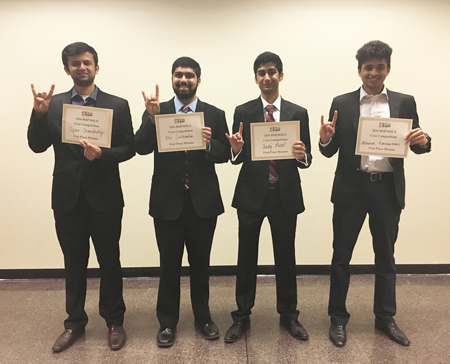The Business Honors Program in partnership with Women in Computer Science (WiCS), hosted its first interdisciplinary case competition focused on Austin traffic this past weekend. Given the population explosion, record number of crashes, and insufficient[…]
Tag: Case Competition
Students Take Fourth Place in a Non-Profit Case Consulting Competition
BHP students Robert Ma, Thomas Pigeon, Jane Tedjajuwana and Shannon Wey took fourth place at the McDonough-Hilltop Business Strategy Challenge at Georgetown University in Washington, DC this month. Twenty teams competed, 11 from the U.S.[…]
BHP Students Take First Place In SCI Case Competition
It is no secret that Austin, Texas is the place to be right now for anything to do with business. Entrepreneurs are flocking to get their startups off the ground, businessmen and women are migrating[…]

